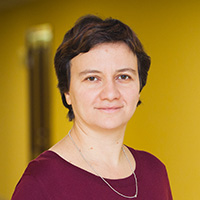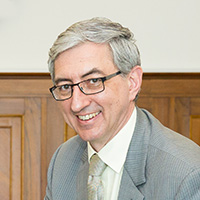HSE Continues to Rise in THE World University Rankings

In the latest Times Higher Education university rankings, the Higher School of Economics rose to the 351-400 category among 1,102 schools worldwide. This is an improvement on last year, when HSE was in the 401-500 group, with the university ranking fourth among the 27 Russian universities that made it to the ranking.
This is the second year in a row that the Higher School of Economics has risen in the THE World University Rankings. HSE has strengthened its international reputation scores thanks to an increase in the number of publications and citations, as well as the university’s global recognition as one of the best research universities in the world. In addition, the spectrum of subjects offered at HSE is growing; aside from traditional fields such as the socioeconomic sciences, HSE has been making a name for itself as a global partner in mathematics and computer science.

Maria Yudkevich, HSE Vice Rector, on improved scientometric indicators
For many years, HSE has been carrying out a large-scale programme to encourage authors to publish in top academic publications. We pay special attention to the differentiation of such support depending on the journal, conference, or monograph publisher. Researchers whose work makes it into top publications – publications that have been thoroughly reviewed and read by researchers all over the world – can expect a raise of around 80,000-100,000 rubles per month. This of course motivates everyone and gives people the opportunity to focus on both teaching and research.
Another factor that ensures the number of publications in leading journals continues to increase is our growing cooperation with the internationally renowned specialists who come to work at the Higher School of Economics, both short- and long-term. Equally important is the fact that researchers are brought in from around the world to lead international laboratories and serve as advisors to undergraduate and graduate students. This might not have an instantaneous impact, but this will certainly ensure long-term growth. We are already seeing our first results.
Finally, it is important to note the development of several new fields at the Higher School of Economics. Above all, this concerns the exact, technical, and natural sciences, in which the percentage of authors whose work is printed in international publications considered in the THE rating is still higher than that of authors in the social sciences and humanities, which are more traditional for our university. Currently, authors from HSE are published regularly in top journals such as Physical Review Letters, The Lancetor Optics Express. In addition, our team presents at the largest conferences on neural networks and machine learning and publishes monographs in the best university presses around the world.
As for more qualitative indicators, the number of HSE articles in the upper quarter of THE’s most-cited journals on Scopus has grown from 105 in 2012 to 369 in 2016, while the overall number of citations in 2012-2016, excluding self-citations, soared to over 13,000.

Ivan Prostakov, Vice Rector, on international outlook metrics
HSE’s international outlook score, which ratings agencies use in their calculations, has grown both rapidly and steadily. Over the last four years, the percentage of international researchers and instructors, including Russian teachers with a PhD, has increased from 5% to nearly 11%, while the percentage of international students has grown from 3% to 8%. But advancing on the ratings and improving our scores – this is not an end in itself.
The international outlook scores improved thanks to the incredible work of all HSE departments and staff. Their work has allowed for the number of interuniversity partnerships to grow, while new joint educational programmes and products such as Summer University, Mathematics in Moscow and Semester in Moscow for international students have been launched. Lastly, we have the rise in business culture at the university to thank. For example, the percentage of English-speaking administrators in core educational programmes has skyrocketed from 5% to 65% in 2013-2017. We should of course be happy with and proud of our advancement in the rankings, while also not forgetting that they are just one of the integral results of our university’s real development.
Maria M. Yudkevich

